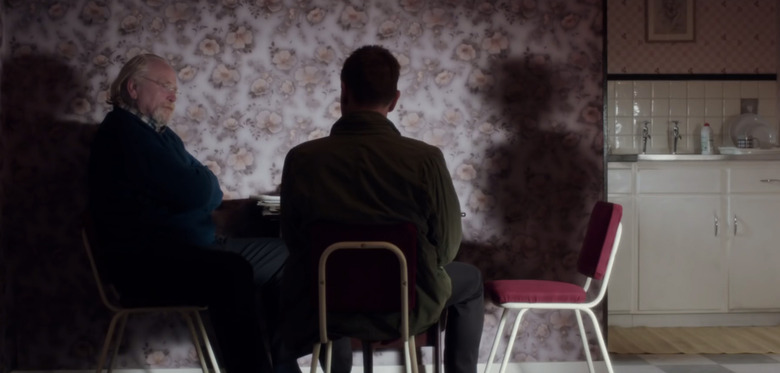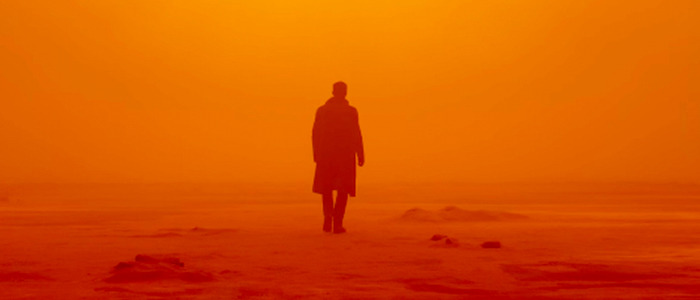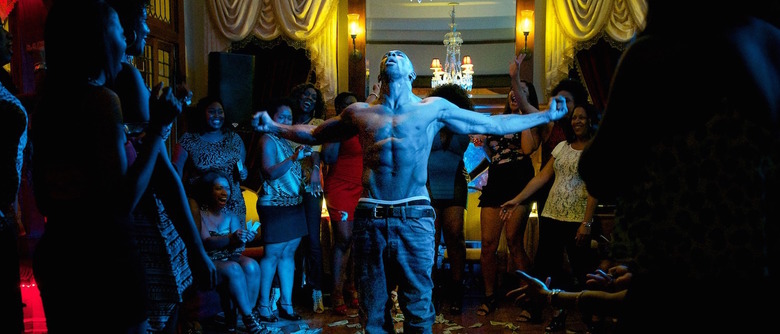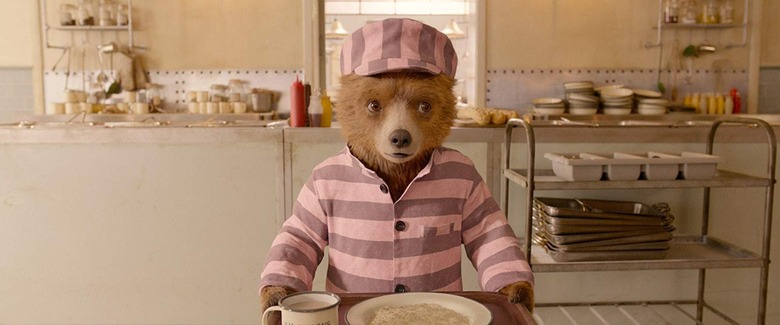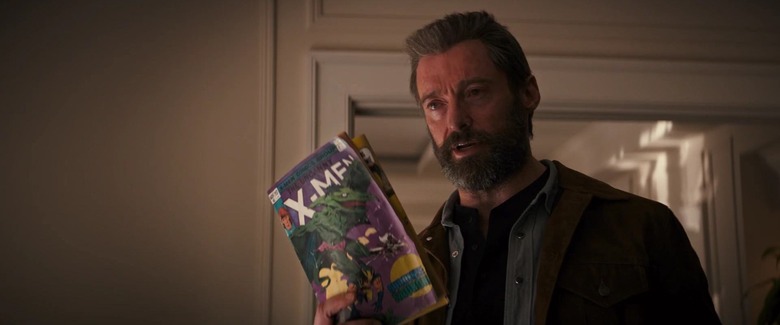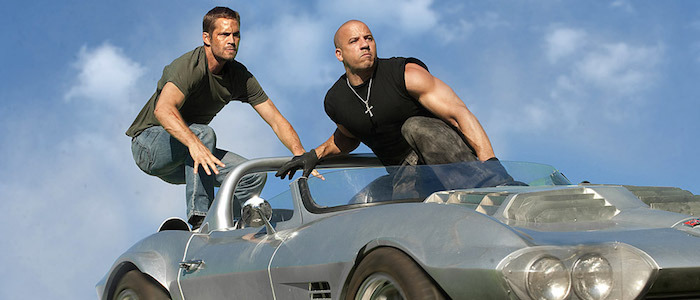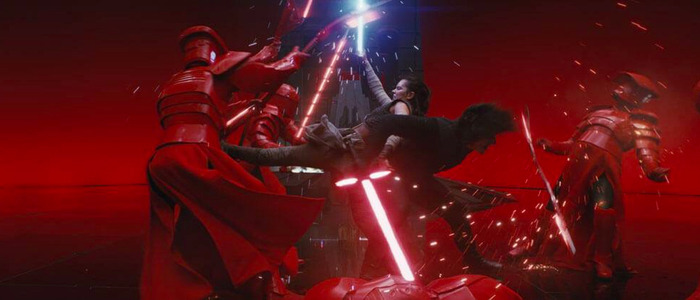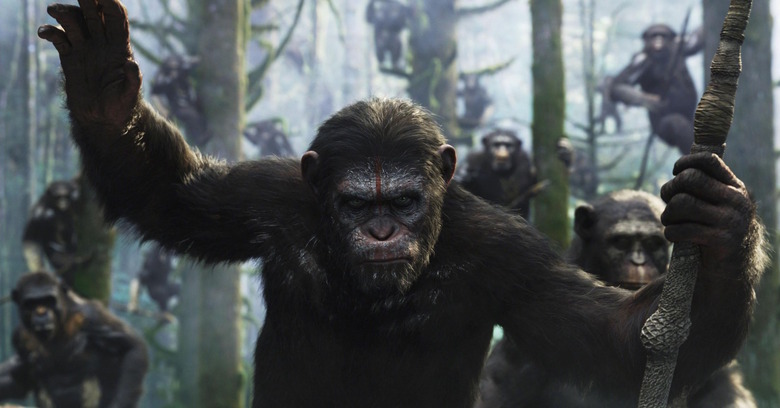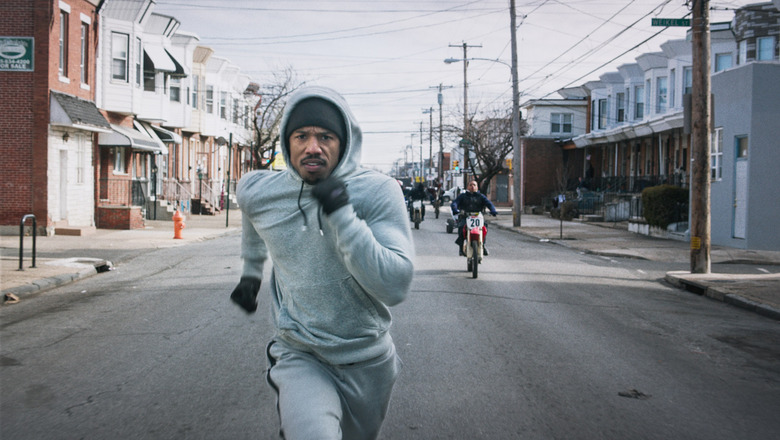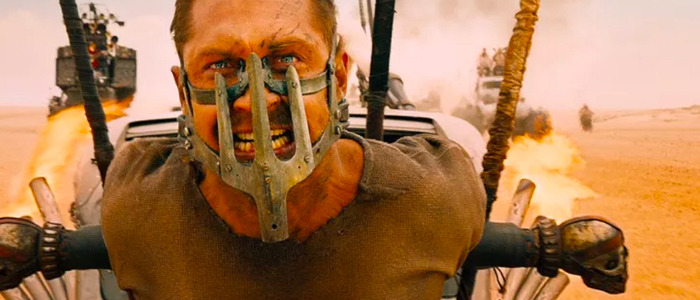The 10 Best Sequels Of The Decade
(This article is part of our Best of the Decade series.)Sequels were big business this last decade. Between shared universes (Marvel, DC, Fast & Furious, Star Wars), nostalgia sequels (Independence Day: Resurgence), surprise sequels (Split), soft reboots (Bumblebee), and hard reboots (21 Jump Street), every flavour of sequel was represented in some way. Many, of course, were terrible. But taking stock at the end of the decade, it was a surprisingly good time for sequels. Several would be in contention for many moviegoers' "best of the decade" list. But ten sequels truly stood out to us as particularly innovative approaches or simply exceptionally good films. Let's take a look.
10. T2: Trainspotting (2017)
Appropriating the titling convention from one of the best sequels ever made is a bold move. Doing so for a two-decades-later sequel to a classic cult film that never ever cried out for one is even bolder. Danny Boyle's freewheeling 1996 heroin drama was a singular piece of art that stood out in Boyle's filmography as the perfect match for his kaleidoscopic, wide-angle experimentation. It's a stone-cold classic that borderline defines a certain view of Scotland for many people, with a baller soundtrack and iconic performances from Ewan McGregor, Robert Carlyle, and more still. To make a sequel to this film, which never needed one, would be sacrilege, running the risk of diminishing the original.Perhaps that's why T2: Trainspotting went sadly underseen. If audiences had gotten out to it, they'd have found a film just as bold in its craft, with just as much to say. We return to our familiar characters twenty years later, in an Edinburgh whose old scumminess is being gentrified into oblivion. Renton (McGregor) is in a mid-life crisis, as are the rest of them, in their own ways, and they all confront their various demons through one last dodgy business venture. The film is just as full of memorable setpieces as the original, but it's more mature and more reflective. A reprised version of the "Choose Life" speech, for example, makes a completely different point and creates a completely different sense of tragic irony. T2: Trainspotting ruthlessly picks apart the kind of nostalgia that drove many sequels this decade, and even its final "Lust For Life"-scored moments are utterly devastating.
9. Blade Runner 2049 (2017)
One can't envy Denis Villeneuve's task on Blade Runner 2049. The original Blade Runner frequently makes "best of all time" lists, and had resisted any attempts at being sequelised. It's so influential, having inspired so many knockoffs, that any sequel would likely feel like fan fiction. What's more, Ridley Scott had already made a successor to another of his sci-fi classics, Alien, in the form of Prometheus – a widely-reviled film decried by many as a succession of beautiful, completely empty images. That Scott himself couldn't follow up one of his films successfully didn't bode well for a second Blade Runner. Add to that Harrison Ford's notorious resistance toward reprising certain of his classic roles, and the notion that replicants (like Deckard) only lived a few years, and you've got yourself in a pickle.The solution, it seems obvious to say now, is to continue questioning the nature of sentience and humanity, even going so far as doubling back on the original's ideas on it. Villeneuve's film expands upon the themes of the 35-year-old film, poking at them from new angles, while introducing new ideas that developed the fringes of its futuristic world. It's also every bit as visually spectacular, with just as innovative visual effects, as its predecessor. Roger Deakins' sumptuous cinematography deservedly won him his overdue first Academy Award, as did the visual effects that so beautifully complemented that cinematography. Even Harrison Ford returned, in a role that deftly avoided directly answering the original film's central question but deepened whatever interpretation of it you cared to take. No wonder Villeneuve got given Dune to make next.
8. Magic Mike XXL (2015)
The original Magic Mike, about a teenager who enters the world of male stripping under Channing Tatum's wing, only to fall to the excesses of that world, was a surprisingly dismal time at the movies. Sold on Tatum's physical prowess and the dancing angle, what it delivered was a rather maudlin drama. It felt like a minor film for director Steven Soderbergh, drenched in gloomy colour grading and failing to do much genuinely new. What would a sequel to that even look like? Were people clamouring for one? It seemed like people wanted a completely different type of movie from Magic Mike in the first place.Perhaps that's why Magic Mike XXL is a completely different type of movie. Ditching the drama in favour of an almost sports-movie structure, in which Mike and the gang try to make it to a big stripping convention and competition, Magic Mike XXL was the feel-good movie of the decade. Boasting a terrific cast, it's essentially a hangout movie with awesome, non-toxic men who exist solely to make women's lives better. It's funny and lively, the dancing is terrific, and for those who are interested, there are literally hundreds of pounds of man-meat on frequent display. Joe Manganiello manages to create one of the best scenes in any film of any year this decade using just a bag of chips and a bottle of water. It's incredible.
7. Paddington 2 (2018)
Underseen outside its native Great Britain and its family target audience, Paddington was a miracle of a film. Exquisitely well-crafted by director Paul King, it warmed hearts to nuclear temperatures without ever resorting to easy schmaltz. The story of an immigrant bear trying to make his way in a somewhat hostile London wasn't just entertaining as all hell – it was a potent social tonic in increasingly divided times.Paddington 2 doesn't reinvent anything – it's just a damned good sequel. It takes everything that made the first film such a delight and amplifies it, while adding new wrinkles and redirecting its social commentary toward the justice system. The filmmaking reaches even higher peaks, the supporting cast – particularly a prison population led by Brendan Gleeson's Knuckles McGinty – is divine, and Hugh Grant has the time of his life in what is arguably the role of his life. If you wanted escapism in the winter of 2017 – and you really wanted escapism that winter – Paddington 2 would give it to you, and leave you a better person afterwards.
6. Logan (2017)
Fans had been clamouring for a decent Wolverine solo film for years, and one of the most-cited comic titles was Old Man Logan. While Logan isn't an adaptation of that run of comics, it took some important lessons from it. Crucially, it brings Hugh Jackman's mutant brute to a more-advanced, more-grizzled age, replacing his bravado with world-weariness and regret. The story – involving a young mutant, the first of her kind in years, trying to escape to freedom – is almost secondary to the act of giving this beloved character a dignified ending.Director James Mangold understood that, and while the film's action is well above average, it's the drama that really hits home. Jackman finally gets a chance to flex his dramatic muscles in his X-Men role, Patrick Stewart has possibly never been better onscreen as an increasingly infirm Professor Xavier, and newcomer Dafne Keen likely booked a ton of work off the back of her intense and moody co-leading performance. The whole thing is treated with utmost sincerity, right up to the heartbreaking conclusion. Perhaps unwittingly, given the time it takes to make these things, Logan also plunged directly into a key political subject – that of immigration – and ended up making a much more specific point than previous X-Men films ever dreamed of. It'll be the blueprint for serious comic-book character dramas for years.
5. Fast Five (2011)
Calling Fast Five a sequel is like calling a chainsaw juggler a lumberjack. Not content to continue the previous film alone, Fast Five brought the four previous, largely disparate films into a single narrative, and moreover switched into a new genre and turned a loose series into a world-dominating franchise. Were it not for the sweeping decisions made on this film, the next five (and counting) likely wouldn't exist, let alone be the incredible and entertaining nonsense that they are.Fast Five brings all the major characters from the Fast series thus far, and turns them into a globetrotting action squad only a few steps removed from the Mission: Impossible team. What started as a series about illegal street racing turned, in this film, to a high-octane action franchise, equally committed to its theme of family as it is to its ridiculous stunts and setpieces. This one set the bar with a spectacular heist that saw the crew dragging a bank vault through the streets of Rio de Janeiro like an enormous cubic wrecking ball. It also introduced Dwayne Johnson's government agent Hobbs, a highlight in multiple films to come. Future Fast entries would up the action ante, but they wouldn't exist without this ballsy and clever gear-change.
4. Star Wars: The Last Jedi (2017)
The Force Awakens was the most important film in the new, Disney-produced Star Wars canon, but it wasn't the best. That title goes to The Last Jedi, the only new Star Wars film to actually tell a story about something greater than its plot, and the only Star Wars film ever to have a meaningful dialogue with the series' themes. Many fans disliked that about it, but just as many were delighted to be challenged. It also helps that the movie is beautiful and entertaining as hell.Chief amongst The Last Jedi's virtues is its questioning of the action-hero mentality that had come to dominate the franchise. Between Poe Dameron causing disaster with his hotshot actions, Finn and Rose being confronted with elites who profit from endless war, Luke Skywalker confronting his own self-doubt through Rey, and Yoda's final lesson about the dialogue between teachers and students, it's a shockingly thought-provoking film, given that Jar-Jar Binks was stepping in poop twenty years ago. Rian Johnson's filmmaking is also a high point for the series, constructing some startling compositions that would feel as at-home in an art film as in a billion-dollar blockbuster. It's a bold, striking movie that isn't out to coddle fans, and for that, I thank it.
3. Rise of the Planet of the Apes/Dawn of the Planet of the Apes/War For the Planet of the Apes (2011-2017)
Rise of the Planet of the Apes was a gamble. The previous Planet of the Apes had made a bit of money, but was widely hated and disparaged as the worst film in both the Apes series and Tim Burton's filmography. Only the original Apes remained in widespread pop-cultural memory, the sequels having offered diminishing returns despite developing quite a cult of admiration. Rebooting this franchise with state-of-the-art and highly expensive visual effects wasn't just a test of the public's desire for more Apes – it was a test of how far motion capture technology could be pushed. And it was wildly successful.Rise may have been the first in this new trilogy, but Dawn makes it onto this list as the trilogy's representative on account of being more of a direct sequel, and on account of being a better all-around film. The emotional power struggle between Caesar and Koba escalates to full-on Shakespearean levels at times, aided by visual effects that all but erase memories of the original films' increasingly-cheap makeup. And anchoring it all is Andy Serkis' towering, consummate performance, breathing heartbreaking life into a chimpanzee and demonstrating that motion capture can be a vessel for performance, not a barrier to it. The trilogy may only have met moderate financial success, but time will be kind to it. It's incredible.
2. Creed (2015)
Creed is the seventh film in the Rocky franchise, which places it in one of the longer-running series on this list. But it's also a torch-passing film, and inasmuch started a new series of sorts. Incredibly, Creed manages to do double duty as a fresh film about troubled protagonist Adonis Creed, and as a film about a declining Rocky Balboa working through his own issues. Reminding audiences why Rocky was such a hit back in '76, it tells a heart-wrenching story in which instant star Michael B. Jordan puts emotional weight into every punch he throws.Ryan Coogler had a lot to prove with Creed, representing as it did his leap into the big leagues. Consider it proven, as Creed is filled with bravura filmmaking and performances that hit as hard as its punches. Coogler demonstrates masterful control of the filmmaking toolbox here, weaving his favourite themes into a sequel that never should have worked. Looking back, it's all too easy to see Creed as a stepping stone for Coogler on his way to Black Panther. But it's a hell of a stepping stone, and one of the best films of the decade in its own right.
1. Mad Max: Fury Road (2015)
Surprise, surprise. After all the accolades heaped upon it – both at the time of its release and now at the end of the decade – it seems redundant to put Mad Max: Fury Road atop yet another list. But it's hard to stress enough just what a miracle it was as a sequel. 70-year-old George Miller had come off a string of animated children's films; there was little to indicate he still had the energy that birthed The Road Warrior decades earlier. The title character was recast, with Tom Hardy replacing a fallen-from-grace actor once iconic in the role. And there was little to suggest that Mad Max had the kind of franchise loyalty that would make WB's $150 million at all worth it.But of course, all of those concerns were allayed when Miller turned in the most jaw-dropping vehicular action movie of all time, completely schooling everyone else in the business and winning a bunch of Oscars in the process. As a sequel, it furthered the sense that the Mad Max films are fuzzy legends, only paying cursory attention to continuity and concerning itself entirely with the here and now. No sequel to a grungy Aussie cult movie had any right to be this good. But Fury Road was.

